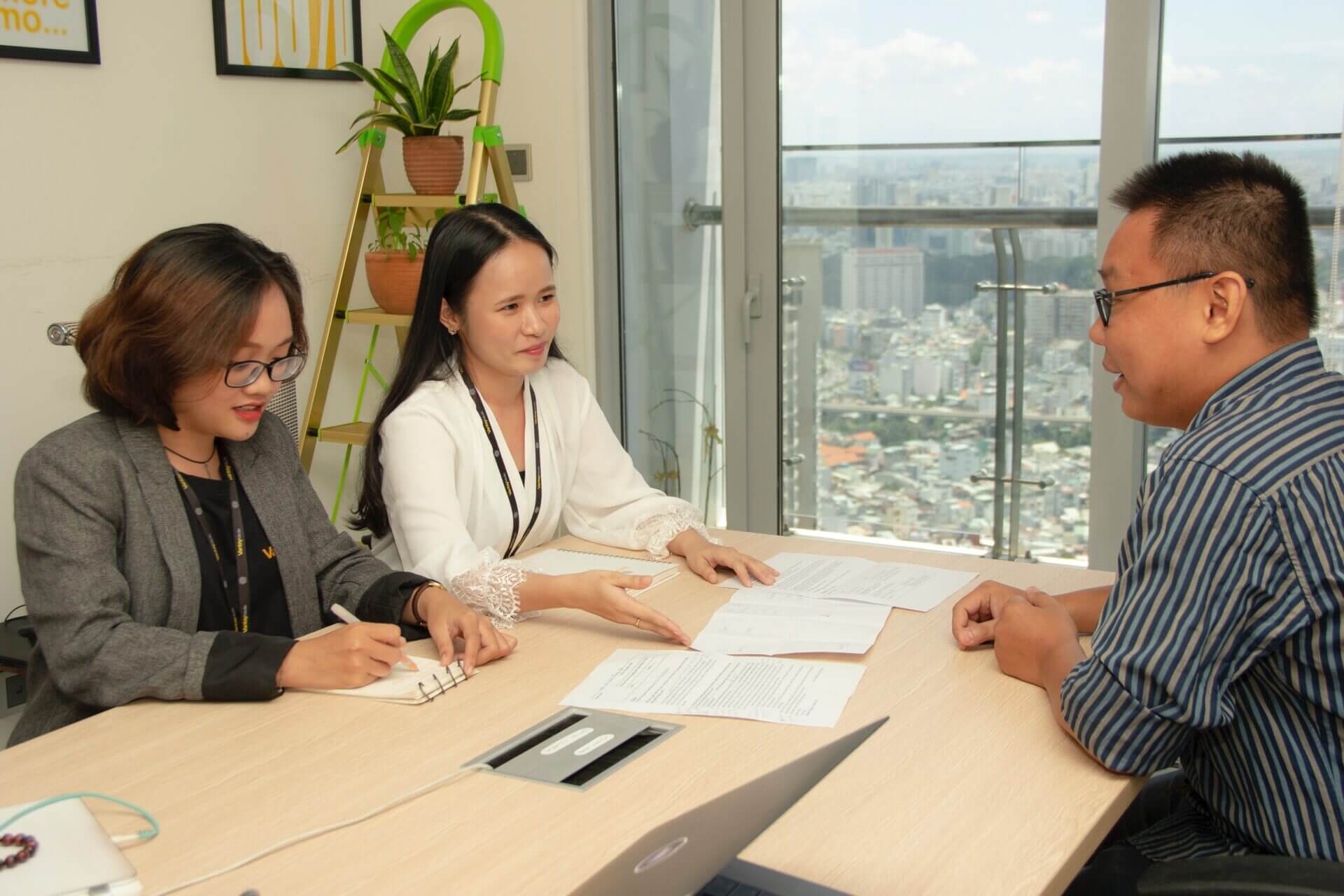Conducting effective leadership interviews is crucial for identifying and selecting the right candidates to steer an organisation towards success. By employing a strategic approach, interviewers can assess candidates’ leadership potential, problem-solving skills, and ability to inspire and motivate teams. We’ve pulled together our best interview techniques for leadership interviews which will hopefully help set the foundations.
Table of Contents
Interview Preparation Tips
- Thorough Review of the Candidate’s Profile:
- Dedicate ample time to thoroughly review the candidate’s resume/CV, cover letter, and any supplementary materials.
- Identify key experiences, skills, and qualifications relevant to the leadership role.
- Note any areas of strength or potential gaps that require further exploration during the interview.
- If you have one, you should also carefully read their occupational personality profile report to understand what questions you may wish to focus on when it comes to their personality and cultural fit into the business.
- Identify Key Leadership Qualities:
- Clearly define the essential leadership qualities and skills required for the role.
- Consider factors such as communication, motivation, decision-making, conflict resolution, strategic thinking, and adaptability.
- Tailor interview questions to assess candidates’ ability to demonstrate these qualities.
- Craft Thoughtful Interview Questions:
- Prepare a mix of open-ended, behavioural, and situational questions which are relevant to the role.
- Open-ended questions encourage lengthy responses, allowing for a deep understanding of the candidate’s thought process and leadership style.
- Behavioural questions focus on past experiences, asking candidates to provide specific examples of their leadership actions and outcomes.
- Situational questions present hypothetical scenarios or challenging situations, asking candidates to explain how they would approach the situation and what actions they would take.
- Practice Active Listening:
- Pay close attention to the candidate’s responses, asking clarifying questions to gain a deeper understanding.
- Active listening demonstrates engagement, builds rapport, and helps uncover hidden strengths.
- Interviews are a two-way street, make sure you encourage questions from the candidate and answer them openly and honestly.
Types of Interview Questions for Executives
- Open-Ended Question Examples:
- “What would you say is your leadership philosophy?”
- “How do you motivate and inspire your team?”
- “What challenges have you faced as a leader, and how did you overcome them?”
- Behavioural Question Examples:
- “Describe a situation where you successfully resolved a conflict within your team.”
- “Share an instance where you demonstrated your ability to motivate and inspire your team to reach a goal.”
- “How do you delegate tasks and responsibilities to your team members?”
- Situational Question Examples:
- “How would you handle a team member who is consistently underperforming?”
- “Navigate [x,y,z] conflict between two senior team members?”
- “How would you approach a situation where a project is falling behind schedule?”
Body Language and Communication Skills
Effective communication and positive nonverbal cues play a crucial role in leadership interviews.
- Open and Confident Body Language:
- Maintain an open posture, avoid fidgeting or crossing arms, and maintain eye contact with the candidate.
- Smile and engage in pleasant conversation, projecting confidence and enthusiasm.
- Active Listening and Clear Communication:
- Listen attentively to the candidates’ answers to your questions and respond clearly and concisely to theirs, using strong examples to support your claims.
- Articulate your thoughts and ideas effectively, using appropriate language and avoiding jargon.
- Empathetic and Relatable Approach:
- Demonstrating empathy and understanding towards the candidate.
- Connect with the candidate on a personal but professional level, building rapport and trust.
Strategies for Handling Tricky Interview Situations
Even the most seasoned interviewers may encounter unexpected questions or challenging situations. Here are some strategies for navigating these moments:
- Maintain composure:
- If faced with a challenging question from a candidate, take a deep breath and maintain composure.
- Reframe the question or ask for clarification if needed.
- Avoid becoming defensive or flustered – the candidate should be encouraged to ask questions, even if they are difficult for the interview panel!
- Avoid negativity:
- Avoid making negative comments about previous employees or situations. Instead, focus on highlighting positive experiences and growth opportunities.
- Focus on how you have learned from past challenges and how you have grown as a business.
- Turn challenges into strengths:
- Reframe difficult situations as opportunities for learning and growth, but be candid with the candidate. Explain how you overcame challenges and emerged stronger as an organisation.
- Share examples of how you have transformed setbacks demonstrating resilience and problem-solving abilities as a team and a business
Following Up After the Interview
Following up after an interview demonstrates professionalism and leaves a positive experience for the candidate which is important. 56% of candidates who had a negative hiring experience said they would not recommend the company to others, so leaving a good impression of whether the candidate is successful or not is important.
If you are working with a recruiter or executive search partner, then they should handle this follow-up on your behalf.
- Express gratitude: Send a thank-you note promptly, expressing gratitude for the candidate’s attendance at the interview.
- Feed-back promptly: Don’t leave candidates hanging for longer than it takes to make your decision, then feed back to them with useful feedback in a way which leaves a lasting positive impression.
Improving Your Interviewing Performance Over Time
Like with everything in life, development requires reflection and continued awareness of new information and ways of doing things. To be a good interviewer, you should look to take steps to improve your interview performance over time, such as:
- Reflect: Regularly reflecting on your interview performance and seeking feedback can help you hone your interviewing skills.
- Self-assessment: After each interview, reflect on your strengths and areas for improvement. Consider feedback from the interviewer or others involved in the hiring process.
- Identify aspects that went well and areas that could be improved.
- Make note of specific examples that demonstrate your leadership skills.
- Practice and rehearsal: Practice answering common leadership interview questions, and role-playing with a friend or colleague to improve your delivery and confidence.
- Utilise online resources or mock interview platforms to practice answering different types of interview questions.
- Record yourself and review your performance to identify areas for improvement.
- Observe and learn: Watch professionals in leadership positions and analyse their communication, decision-making, and conflict-resolution skills.
- Attend leadership workshops or seminars to gain insights and learn from experienced leaders.
- Continuously strive to expand your knowledge and enhance your leadership capabilities.
By following these comprehensive tips and strategies, interviewers can more effectively assess leadership potential, identify the best candidates, and make more informed hiring decisions. However, the more strategically significant the role, the more benefit you are likely to get from working with a professional partner, so you should consider the risks of trying to hire leaders yourselves vs getting professional help.



